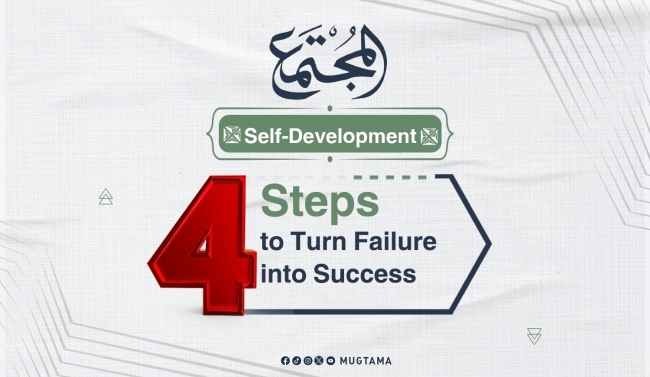From an early age, our struggle with failure begins. With our first steps toward something that caught our attention or someone we wanted to approach, our attempts often end in stumbling. Yet, our failed efforts to avoid falling never stopped us from trying to stand again. From attempts to walk to learning how to speak, countless words were mispronounced, drawing laughter from those around us, but gradually, we mastered what we sought.
Despite childhood memories filled with stories of failed attempts to learn, persistence and determination always helped us achieve our goals. Still, failure remains a daunting specter for every adult chasing a dream. But making mistakes is not the end of the world; the past, with all its positive and negative experiences, shapes who we are today. Life is full of opportunities and experiences. Do not let a failed attempt define your life—transform it into a learning opportunity and start anew.
1. Understanding the Reality of Failure
Failure is inevitable, and accepting this is the first step toward success. True failure lies in giving up, not in making mistakes. Each attempt that lacks experience is an opportunity to learn and grow. By analyzing failures, we identify gaps and use the lessons to launch new, more informed attempts. Adjusting plans and strategies to avoid repeating past mistakes ensures progress. Mistakes are not shameful; what matters is learning from them. As the Prophet Muhammad (peace be upon him) said: “A believer should not be stung twice from the same hole.”
2. Taking Responsibility and Facing Failure Positively
When we view failure as a teacher, not an adversary, our perspective on life and its challenges transforms. Failure is not a sign of incompetence or incapacity; it’s a chance to learn and rebuild. Instead of blaming ourselves or circumstances for failure, we can see our mistakes as steps forward in personal growth rather than obstacles.
Adopting a flexible and adaptive mindset is key to success. Facing failure with an open mind and strong will can turn even the most discouraging moments into opportunities for reassessment and skill refinement. Focusing on what we’ve learned from the experience enables us to build stronger, smarter plans. Optimism is not merely a feeling—it’s a lifestyle that empowers us to overcome challenges with courage and determination.
3. Identifying Strengths and Weaknesses
Self-awareness and honest self-assessment are crucial for success. Strengths serve as the foundation for our plans, while identifying weaknesses allows us to embark on self-improvement and seek guidance from experts. Success is rarely achieved in isolation; it requires a robust support network that helps us progress and overcome challenges. Building positive relationships with those who share similar visions and goals can be a significant motivator to persevere through difficulties.
4. Faith and Determination
When faced with failure, the real challenge lies in how you respond and your ability to rebuild and move forward. Failure may seem like an end, but in essence, it’s a new beginning and an opportunity to reassess and find better paths. Allah reminds us in His words: "But perhaps you hate a thing and it is good for you; and perhaps you love a thing and it is bad for you. And Allah knows, while you know not" (Al-Baqarah: 216). This assurance of Allah’s wisdom strengthens our faith and helps us face difficulties with an open mind and resilience. When this resilience is combined with careful planning, obstacles become mere stations in the journey toward achieving our goals.
-------------------------------------------------------------
Source:
- "Your Life from Failure to Success" Book by Sayed Sadiq Abdel Fattah
- How to Turn Failure into Success – Inspiring Steps by Dr. Al-Tayeb Belwadih
- How to Turn Failure into Success?! Al Jazeera Net


